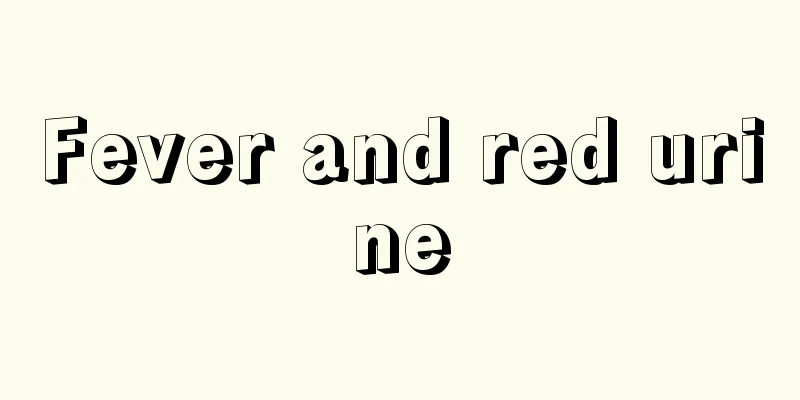Did you know that the intestines have “six enemies and five friends”?

|
If the human body is compared to a factory, then the intestines are the "gas station" and "sewer" of the factory, which are mainly responsible for the dirty work in the body, because various foods will be broken down and absorbed here, and the remaining residues will also be excreted from the body from here. Among the food that enters the intestines, some are good friends of the intestines and can help it "work" better, while some are destructive molecules that will damage intestinal health. Good friends of the intestines Foods rich in dietary fiber. Dietary fiber is like a "cleaner" in the intestines. It can promote intestinal motility and the secretion of digestive juices, absorb toxins, and reduce the incidence of intestinal diseases such as colorectal cancer. In addition to coarse grains such as red beans and mung beans, fungal and algae foods such as fungus, kelp, wakame, and button mushrooms are also rich in dietary fiber. In addition, root vegetables, such as carrots and sweet potatoes, are also high in fiber. Foods rich in probiotics. Probiotics and pathogenic bacteria coexist in the intestines. When pathogenic bacteria defeat probiotics, the balance of intestinal flora is broken, which may lead to constipation, diarrhea and other problems. Therefore, drinking more foods rich in probiotics, such as yogurt, can help balance the intestinal flora and maintain intestinal health. Foods rich in prebiotics. Prebiotics are food for the thousands of beneficial bacteria in your gut. Foods such as onions and beans are rich in prebiotics, which can provide nutrients to intestinal probiotics; carrots contain arabinogalactose, which is a natural prebiotic. In addition, foods such as garlic and turmeric are also rich in prebiotics, which help the growth of probiotics. Cruciferous vegetables. Cruciferous vegetables such as Chinese cabbage, broccoli, cauliflower, and kale contain a phytochemical called isothiocyanate, which not only helps to clear intestinal waste, but also has anti-cancer effects. In addition, the antioxidants in cruciferous vegetables can enhance the body's resistance and help the growth of beneficial intestinal bacteria. Foods rich in pectin. Pectin, which is rich in fruits such as apples, hawthorn, and bananas, is a non-starch polysaccharide that can delay the absorption of fat and sugar in the intestines and lower cholesterol and blood sugar. In addition, pectin can provide energy for the beneficial bacteria in the intestines and promote the reproduction and growth of beneficial bacteria. In addition, the decomposed pectin produces short-chain fatty acids, which can inhibit the growth of harmful bacteria and thus help prevent the occurrence of colon cancer. Enemies of the Gut High-fat foods. Eating high-fat foods for a long time will reduce the number of beneficial bacteria in the body, leading to intestinal flora imbalance and "internal strife". The large amount of toxins secreted by pathogenic bacteria are absorbed by the human body, which can easily make people lack energy, cause acne on the face, and worsen their skin color. The toxins stimulate the intestinal wall and directly lead to an increase in the incidence of tumors. High-salt foods. Eating too much salt can easily create a high osmotic pressure environment in the gastrointestinal tract, making it impossible for water in the intestine to be absorbed, thus causing intestinal problems such as diarrhea. When cooking, if you use soy sauce, MSG, bean paste and other seasonings in the dish, use less salt. In addition, you should also be careful about the "invisible salt" around you. Bread, biscuits, roasted nuts, and sausages all contain a certain amount of salt. Processed meat. Processed meat is high in fat, and the chemical additives used in the processing and other substances produced after processing may cause cell mutations, leading to a series of chronic diseases. A study of 450,000 people by researchers at the Universities of Cambridge and Oxford in the UK found that those who consumed more than 160 grams of processed meat per day had a 44% increased mortality rate compared to those who consumed only 20 grams per day. Fried foods. Fried foods will produce various carcinogens at high temperatures. Clinical studies have also shown that long-term and excessive consumption of fried foods can increase the incidence of colorectal cancer and gastric cancer by 3 to 5 times. Spicy food. Alcohol, strong coffee, tea and other stimulating drinks, overly spicy food, etc. will irritate the intestines, cause damage to the gastrointestinal mucosa, and lead to gastrointestinal dysfunction. Sweets. The acidic substances produced when sweets are metabolized in the body will disrupt the acid-base balance in the body. A British study confirmed that people who like sweets have an 18% higher risk of colon cancer than those who do not like sweets. |
<<: Eating black garlic after meals greatly improves immunity
>>: 8 "crazy" facts about the human body
Recommend
What should I do if hair loss is caused by insufficient qi and blood?
Nowadays, many people report that they are experi...
Learn about the symptoms of advanced bone cancer
Bone cancer is a common orthopedic disease in lif...
Can wearing underwear generally make your breasts bigger?
Nowadays, many people will still get plastic surg...
What is the mid-term cure rate for gastric cancer?
The cure rate for mid-stage gastric cancer is bet...
Drugs to prolong sexual function
Sexual function is very important for men, and se...
Cost of conservative treatment for tongue cancer
The cost of conservative treatment of tongue canc...
Can I wear braces on porcelain teeth
When treating teeth, we often hear about porcelai...
Vascular anatomy of the lower limbs
The human lower limbs are rich in blood vessels a...
What are the specific surgical treatments for colorectal cancer?
Surgery has a good effect in the treatment of col...
What are the benefits of eating wax apples?
Wax apple is also called water pomegranate. Many ...
How to prevent chronic hepatitis from developing into liver cancer? All the knowledge you need to know to prevent liver cancer
Viral hepatitis has long been a major disease aff...
The nerves in the foot are damaged, this will help you recover quickly
Foot nerve damage can cause great harm to the hum...
What is the cause of the pain in the leg bowl
Nowadays, many people pay more attention to their...
What causes the bone under the collarbone to protrude?
Under normal circumstances, the clavicles on both...
Can the seeds in a pomegranate be eaten?
Pomegranate is a fruit that people like very much...









